As Fireco celebrates its 30th anniversary of fire safety compliance, we’re taking a moment to reflect on three decades of innovation and expertise in fire safety. We caught up with Pam Goddard, our Project System Manager, as she shared her insights on navigating UK fire safety regulations. With years of experience shaping Fireco’s commitment to safety, Pam offers valuable insights on product testing and staying compliant.
Hi Pam, can you tell us how long you’ve worked for Fireco, and a bit about your journey here?
In October 2024, I will have worked at Fireco for 16 years. I started out as PA to our then CEO. Over the years, due to the company evolving, my role has grown and has included stints in HR, Operations, Facilities, Quality, Compliance and event organising. I feel like a Girl Guide collecting badges; I’m currently working closely with the Engineering department, although I haven’t got that badge yet!
In 2015, as the company continued to grow, we identified the need for a more structured approach to project management. I was tasked with providing a framework and processes to manage this transition. Since then, I’ve been involved in over 70 projects, from smaller operational changes to some big ones like the company relocation in 2019, and ongoing new product design and development.
What is the role of a Project Systems Manager?
My role is to coordinate and oversee all current projects. It involves making sure that projects are on track, to document progress, attend meetings, mitigate risk and make sure we’re within budget. My role as PSM is to support and assist other PMs to make sure that we collectively achieve project objectives and timelines.
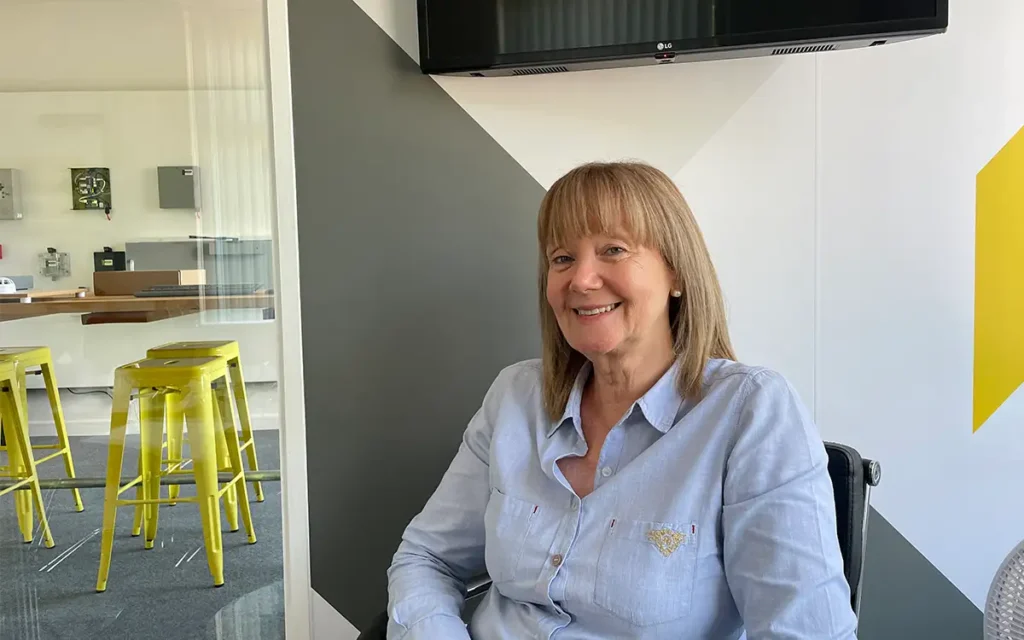
Pam Goddard, Fireco’s Project System Manager
At Fireco, we say that we ‘make compliance easy’. Can you explain the concept of compliance and why it’s important that we’re compliant?
When most products are released into the market, they have to comply with various standards and regulations in order to gain CE and UKCA marking. To comply, our products have to go through stringent tests in order to gain certification; but gaining certification is only one part of being compliant. We have to maintain our product and manufacturing high standards to stay compliant.
With fire safety products, the tests are more rigorous than others, as people’s lives could be at risk. At Fireco, we make sure that all our products are tested thoroughly to the various standards so that our products are compliant with legal requirements and our customers get peace of mind.
What if we weren’t compliant? The answer to this is simple: we wouldn’t have a business. When anyone mentions the word compliance, it usually conjures up an officious-looking person walking around with a clipboard. For me, the concept is much broader. Yes, we have to go through all the testing and audits by a third party, but compliance is at the centre of everything we do. All our employees play a role in making compliance easy for customers, often without even realising it.
So, compliance for us means:
- Ensuring high-quality products in both engineering and build.
- Testing products thoroughly, both externally and in-house.
- Packaging products carefully to prevent damage.
- Delivering products to customers on time.
- Providing customer support for any product issues.
- Striving to make the purchasing process seamless.
- Offering solutions to customers’ fire safety problems, such as inspections or product recommendations.
- Assisting with maintenance and installation.
- Helping customers meet fire safety regulations.
- Providing accurate marketing material.
- Informing customers about product options and their benefits to help them make decisions.
I could go on! But all these seemingly small everyday tasks contribute to making compliance easy.
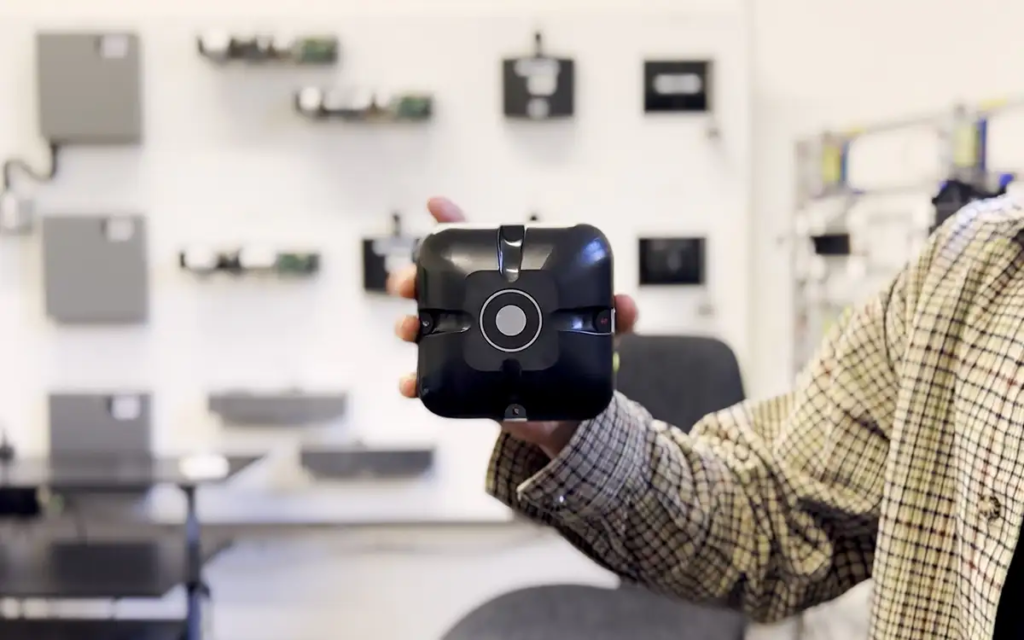
A DorMag Pro unit in the Fireco testing area
What is your role in product testing?
I inherited the role of compliance person at Fireco after a very experienced compliance manager left the business. It was a baptism of fire. I felt out of my depth but I learnt on the job, made plenty of mistakes and I’m still here to tell the tale. Part of maintaining compliance is to ensure our products are tested both in-house and by an approved, third party body. All new products and some product revisions need to go through the various test regimes.
We have a dedicated in-house test facility where our engineers carry out months of testing before we send our products to external test houses. We do this to ensure our products are safe, reliable and able to undergo the rigorous external test procedures.
My role is to organise the tests, which includes finding availability at the labs (no easy feat), organising sampling and sending the products off to be tested. I liaise with both our engineering department and the Approved Body during the tests. I once watched a virtual 30-minute fire test of one of our products, and because of the fear of failing the test, as well as watching a door being set alight with all its smoke and flames, it was one of the most nerve wracking experiences – never again to be repeated!
Once the tests are complete, I chase the report and certificate from the approved body, and finally publish the Declaration of Performance, which shows we have passed the tests.
What is the product testing journey for our products?
- Filling in lengthy application forms detailing the product and type of testing required.This could be mechanical, fire, radio or electro-magnetic testing.
- Securing a test date with the required laboratory. This is not easy, as capacity, particularly in the UK, is low. That’s why sometimes we use EU laboratories that tend to have more availability, although we then have to factor in the cost and logistics of shipping doors and products.
- Sampling. Every product that is sent to the approved body for testing has to first go through a sampling procedure. This is where we provide a number of the same products and the auditor chooses one or two at random to be sent for testing. Why is this done? It’s done to make sure that we aren’t supplying non-standard products, i.e. ones that have been manufactured especially for testing. It’s to prove that all our products are built to the same standard. The auditor marks the product and this information is documented and photographed during testing to provide evidence that the sampled products are the ones on test.
- The actual test. Test duration depends on the type of test. Fire tests, once set up, are carried out over a period of 30 or 60 minutes so we can get the results quickly. Mechanical testing on the other hand is lengthy as the products have to go through 50,000 test cycles among other tests. We keep in close contact with the test house during testing to ensure everything is going to plan. Quite often the engineers at the laboratory have questions and we have to be on hand to answer, sometimes even visiting if there is a problem. Most of the time, problems arise because the test engineers are unfamiliar with the products.
- Once we have passed the tests, we have to wait for the test report and then the official certificate. This can take months and is dependent on the workload of the test houses, which can delay the sale of products as we need certain compliance information/numbering to create product labels.
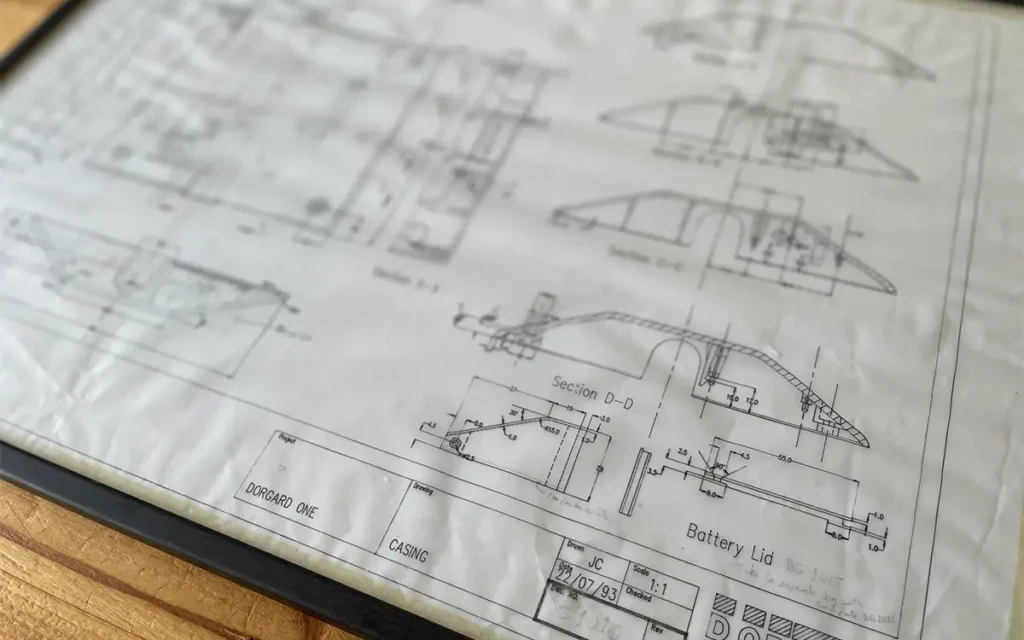
Blueprint design from 1993 for the original Dorgard fire door retainer.
How long is the testing process?
This is determined by the type of test. As previously mentioned, the fire tests take 30 or 60 minutes, although there’s a lot of preparation with sampling of products and doors beforehand, plus the logistics of getting the test samples to the test house. We test to BS 1634-1, which is a full-scale fire test. To gain certification to EN 1155, which is the standard our products fall under, we have to undergo mechanical testing and take and pass the fire test. The mechanical testing takes around 3 weeks if there are no problems or interruptions. In addition to these tests we also carry out Electromagnetic Compatibility tests to ensure that our products function in their intended environment and without causing or being affected by electromagnetic interference. For radio products, we also test to the RED (Radio Equipment Directive). This tests to EU safety standards and ensures our products do not interfere with other radio operated-products.
What challenges has the company faced with testing?
The main challenge is test capacity in the UK. Some approved bodies are currently developing more test capacity which will ease the backlog and increase lab availability. Another challenge was making sure we were compliant with the new rules and regulations post Brexit and in some cases having to re-test.
What does the product launch process look like? Can you break it down?
We have a product launch quality document that is very lengthy! It contains five critical processes for the Engineering team to follow to ensure we are ready for launch. It covers everything from ensuring the back-end systems are in place to build, sell, and market the product. The Engineering Department ensures:
- The Bill of Materials and work instructions are ready
- The Manufacturing Team is trained to build and test the product
- All compliance boxes are ticked
- The Commercial Team has a sales strategy, including target markets, pricing and position in the market.
- Customer Support staff is familiar with the product and trained to assist customers.
Marketing then plays a big part in product launches and can be planning for months before the actual launch.
Thank you, Pam. Finally, as Fireco celebrates its 30th anniversary this year, what is it about the company that makes you enjoy working here?
I think I’ve stayed at Fireco so long because of the variety of roles I’ve taken on over the years. I’ve learnt a lot of new skills and have a good understanding of how the company operates from different perspectives. My work colleagues are a huge part of why I’ve stuck around for so long. We are a supportive and fun team. The Fireco culture suits me well. We are encouraged to innovate, make mistakes without fear and learn from those experiences. As humans, we all make mistakes and our culture is one where they are seen as learning opportunities, rather than something to be ashamed of.
Although it’s important that we recruit individuals based on experience, Fireco also does so on the basis of their attitude, and I think that shines through in the people we employ.
You can speak to our experts about Fireco products and services on 01273 320650

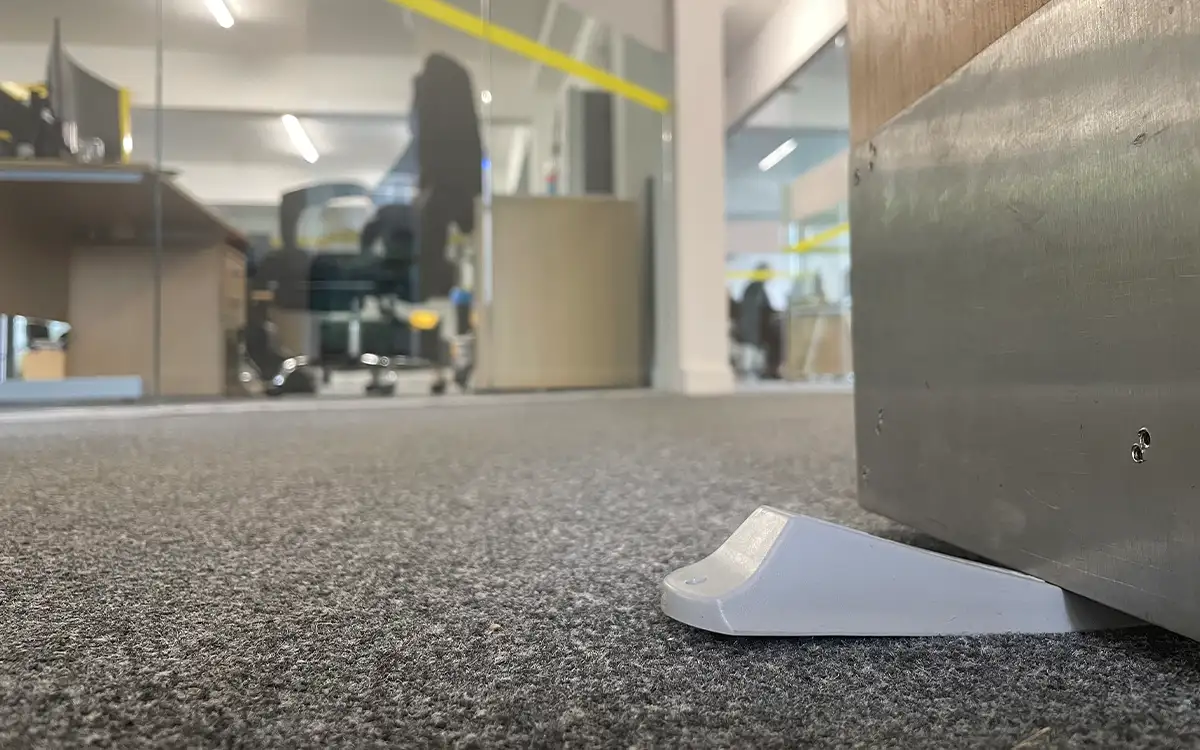
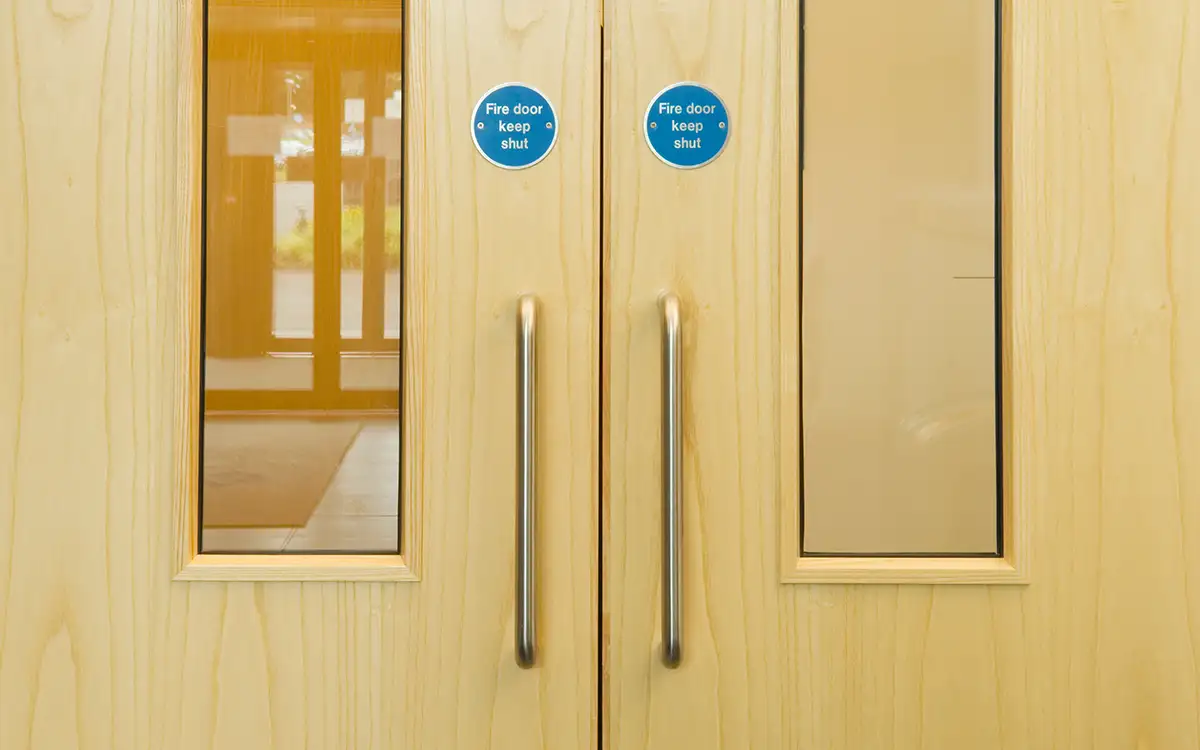

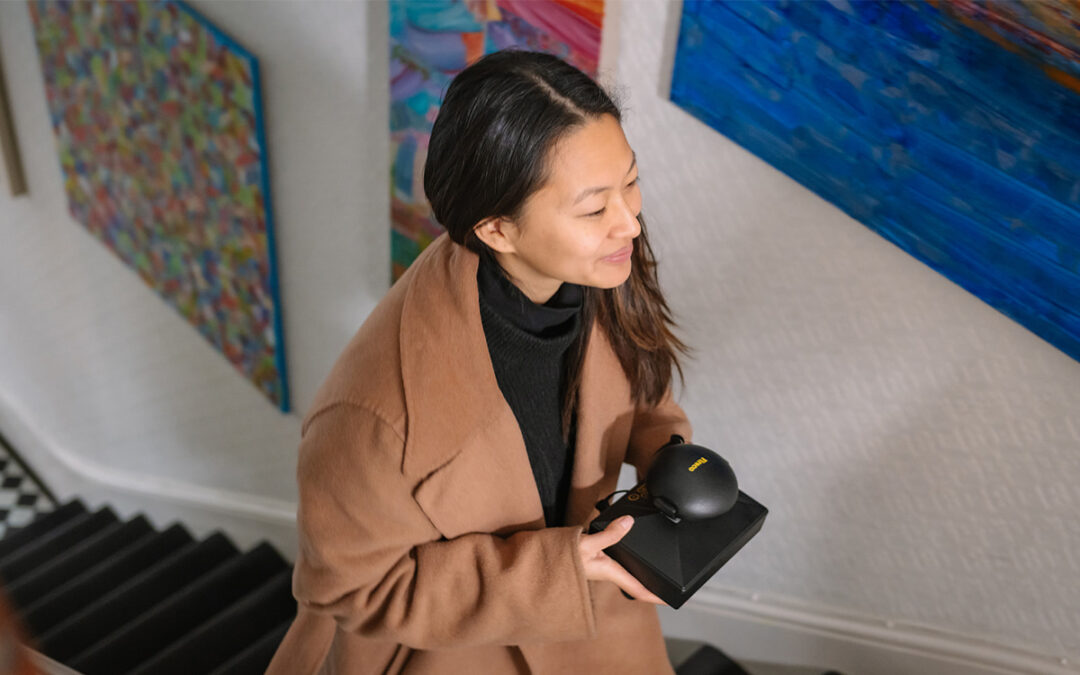
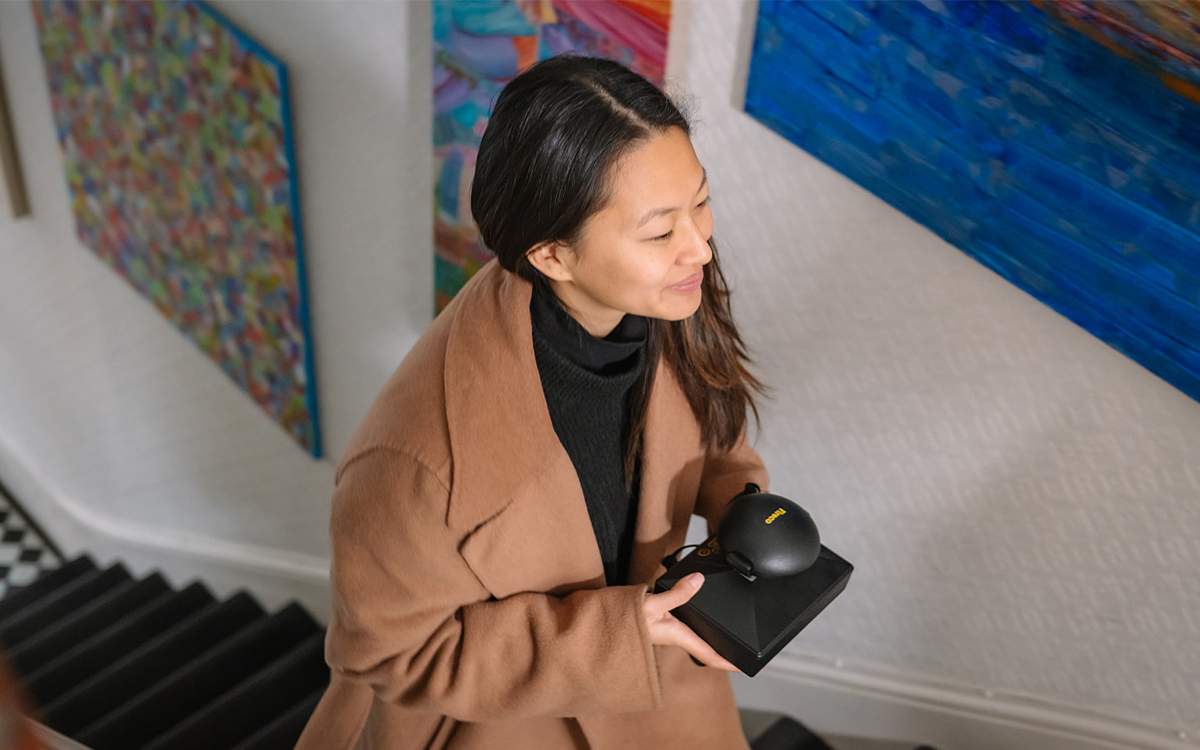


0 Comments